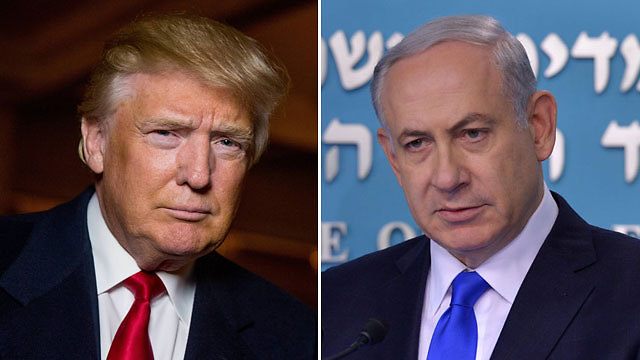Op-ed: Fear and the manner in which it is leveraged by leaders in the US, Europe and Israel threatens democracy. The common denominator of what is developing within the US presidential election campaign (the Trump phenomenon), Europe, in which the echoes of the extreme right wing parties are growing, and PM Netanyahu’s rhetoric of intimidation in Israel is a creeping threat to the foundations of democracy.
“So, first of all, let me assert my firm belief that the only thing we have to fear is … fear itself – nameless, unreasoning, unjustified terror which paralyzes needed efforts to convert retreat into advance.” This is the famous quote from President Roosevelt’s inaugural address in 1933. In the context of the 2016 electoral campaign in United States and Trump’s rhetoric, Roosevelt’s words sharply illuminate a reality that has changed, one in which light is so lacking in our world in 2016: US citizens are falling into a pit of fear, many Europeans are dragged into the abyss of dread, and also here fear drives the political behavior of our leaders and the general public.
Fear and the manner in which it is leveraged by leaders in the US, Europe and Israel strikes at the political culture which is the underpinning of democracy. The common denominator of what is developing within the US presidential election campaign (the Trump phenomenon), Europe, in which the echoes of the extreme right wing parties are growing, and Prime Minister Benjamin Netanyahu’s rhetoric of intimidation in Israel is a creeping threat to the foundations of democracy.

Democracy is a complex organism. Its fortitude depends on several variables, one of the most important of which is civil society’s self-confidence that democracy serves as its way of life. Self-confidence is a prerequisite for a life of hope, welfare and stability, particularly in a reality where there is a variety of religious, ethnic and cultural differences. Self confidence is what provides the ability to cope with the consequences of the variety of differences, especially with the tensions and conflicts arising from them. Self-confidence is also a solution for dealing with ambiguous situations that characterize political reality.
In times of threats to physical security, where exposure to risks (security, economic, social ) increases, the challenges facing democracy increase . Its difficult trials pop up precisely at such times. What is being challenged is the ability to distinguish and respect these differences and look at the reality, no matter how difficult , with a critical look able to differentiate between human phenomena. However, unlike fear, which is part of human nature, self confidence is not natural. When there is mounting fear – the great enemy of freedom – self-confidence is the first victim. Fear without reason paralyzes it.
The language of generalization and hatred employed by Trump and Netanyahu ( the latter without the vulgarity of the former), acts on the primary instincts that human intelligence is supposed to defend against. This language takes the fear from its crypts and amplifies it. This is the essence of Netanyahu’s unfounded warning on election day of buses packed with Arabs flocking to the polls; this is the meaning of the incitement against the non-Jewish minority in Israel in his speech on Dizengoff Street in Tel Aviv, the day after a terrorist attack there. This is not essentially different than Trump’s calls to prevent the entry of Muslims and immigrants to the United States. The same goes for Netanyahu’s absurd attempt to equate the terrorism in Brussels with the terrorism of knives that Israelis are currently facing.
The use of generalizations marginalizes self-confidence. It is reflected in the frequent references made using the definite article ‘the’: the Muslims, the Arabs, the leftists. The frequent use of generalizing and its trickling down from leaders’ language to the political culture and the rhetoric of hate which ensues, hits the weak spots of the democratic organism. The bill aiming to suspend members from the Knesset, a law that doesn’t exist in any other democracy, are examples of weak leadership.
Trump and Netanyahu embody the opposite of the leadership required during difficult times – competent leadership which has a complex vision of reality, which points to milestones in bleak situations and which is honest and trustworthy. It is that type of leadership that Roosevelt talked about in that famous speech: “In every dark hour of our national life a leadership of frankness and of vigor has met with that understanding and support of the people themselves which is essential to victory. And I am convinced that you will again give that support to leadership in these critical days.”
As reported by Ynetnews
